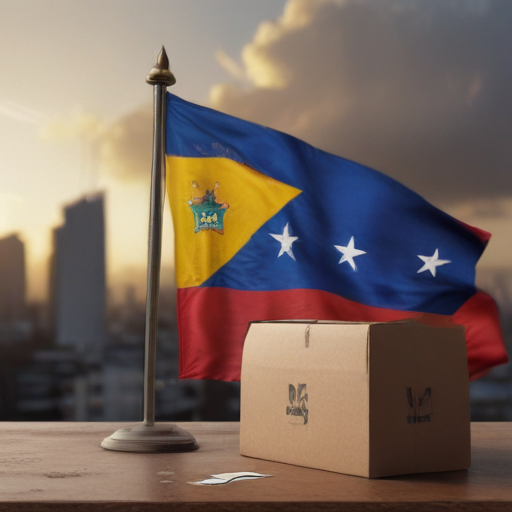Venezuela’s political landscape remains tumultuous following a rally held by the opposition, where prominent leader María Corina Machado was briefly detained but later released. This incident occurred just before President Nicolás Maduro’s controversial inauguration, which many, including the United States, have denounced as fraudulent. The opposition continues to rally behind Edmundo González, the exiled candidate recognized by several nations as the legitimate president-elect.
Machado was reportedly intercepted in eastern Caracas amidst a procession of motorcycles, where gunfire was directed at her convoy. The opposition statement alleges that during her detention, she was compelled to record multiple videos. Previously, Machado had been unable to run in the presidential election after being barred from the ballot. After the contentious elections, she had gone into hiding but chose to emerge for the protest rally.
The situation in Venezuela has raised significant concern, leading to a statement from the United Nations expressing alarm over reports of arbitrary detentions and acts of intimidation. Carlos Correa, a prominent figure in press freedom advocacy, was apprehended by unidentified individuals just days prior to Machado’s detention.
In a show of force, the Maduro administration deployed thousands of police to maintain control as the government-aligned National Assembly prepared for Maduro’s swearing-in ceremony. Incidents of resistance were reported, with police using tear gas against demonstrators, as citizens across various cities asserted their dissatisfaction, voicing support for González.
The elections have come under scrutiny—while Maduro’s government claimed victory, the opposition has gathered evidence suggesting that González actually won by a significant margin. Thousands of voting tallies collected by observers have been secured in Panama, awaiting further validation.
Amid the rising tensions, discussions with international leaders, including a meeting between González and US President Joe Biden, have emphasized a commitment to facilitating a peaceful transfer of power for Venezuela. As the situation unfolds, many citizens continue to express their determination to reclaim their votes and assert their democratic rights.
This recent surge in opposition activity reflects a lingering resilience in Venezuelan society, highlighting the citizens’ resolve to stand against perceived injustices. The international community’s focus on Venezuela may bring a renewed energy to the ongoing struggles within the country, fostering hope for a potential resolution to the political crisis.
